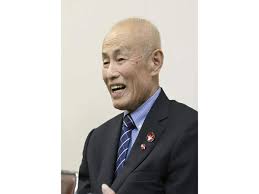Hibakusha:

Nihon Hidankyo, the organisation that worked for the welfare of the survivors of the 1945 bombings of Hiroshima and Nagasaki—called the hibakusha—has been awarded the Nobel Peace Prize for 2024.
- Hibakusha is the Japanese word for survivors of the 1945 atomic bomb attacks on Hiroshima and Nagasaki.
- On August 6, 1945, the United States dropped the Little Boy atomic bomb on Hiroshima, Japan.
- Three days later, the US dropped a second atomic bomb, known as Fat Man, on Nagasaki, Japan.
- By the end of 1945, more than 200,000 people died as a direct result of these bombings.
- Many thousands of people survived with injuries from the attacks. They came to be known as hibakusha, which translates to bomb-affected people.
- Niju hibakusha, double survivors, applies to more than 160 people who were present at both Hiroshima and Nagasaki.
- Currently, the combined number of ‘hibakusha’ who are alive is officially 1,06,825, according to Japan’s Ministry of Health, Labor and Welfare. Their average age is 85.6 years.
- Hibakusha receives support from the Japanese government, including a medical allowance.
- However, in Japan there continues to be discrimination against both the hibakusha and their children, and even grandchildren, based on the common belief that they may be physically or psychologically weakened and that radiation effects are hereditary or contagious.




